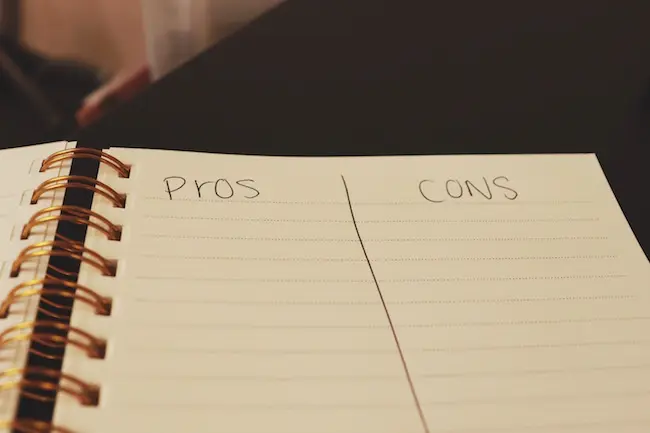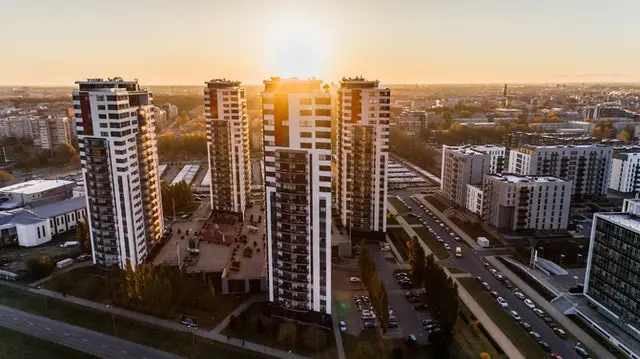Over the last year, countless laws have been passed as a result of COVID-19. These laws were designed to assist landlords and tenants that were financially affected by the pandemic. One of the most recent laws, SB 91, is now being amended by a new piece of legislation: AB 832. This bill essentially extends the provisions on the previous bill, SB 91 (COVID-19 Tenant Relief Act), with a few minor changes.
Disclaimer: We are not attorneys. This is not designed to be legal advice. We always recommend that you contact your attorney about your specific properties. Our information on this topic comes from our attorneys at KTS and the California Association of Realtors. Please read the law AB 832 for more information.
What Does AB 832 Do?
AB 832 extends the COVID-19 Tenant Relief Act (CTRA) through September 30, 2021. During this period, tenants are protected from an eviction as long as they return the required declaration stating a COVID-19 financial hardship AND pay at least 25% of the rent that became due between September 1, 2020 to September 30, 2021 on or before September 30, 2021. Landlords can still require high-income tenants to return a signed declaration along with verification of financial hardship.
It also creates the COVID-19 Rental Housing Recovery Act. After SB 91 was passed, tenants felt that the protections outlined in the bill should extend through the end of the year. Landlords felt a short extension was acceptable, so long as amendments were made to eviction requirements. Both parties wanted a better rental assistance program.
The Recovery Act will impose additional restrictions on evictions from October 1, 2021 through March 31, 2022. The bill also allows jurisdictions with ongoing repayment periods for rent deferred by a local ordinance to delay their repayment date until May 31, 2023.
The good news for landlords is that the state will now pay 100% of delinquent rent on behalf of eligible tenants. Who is an eligible tenant? They are defined as tenants that are making less than 80% of the Area Median Income. Unfortunately, this prevents many landlords and tenants from receiving that rental assistance.
Additionally, small claims filings have been delayed. If the tenant provides a signed declaration and pays at least 25% of the unpaid rent from the transition period by September 30, 2021, the remaining outstanding rent will become a consumer debt and cannot be the basis of any eviction moving forward. The landlord can file a small claims action beginning on November 1, 2021. Landlords must show that they applied for rental assistance prior to filing.
In California, AB 832 is stricter than the CDC eviction moratorium, so it takes precedence. However, the recent eviction ban is stricter than AB 832 so those rules regarding evictions are still in place. AB 832 prohibits the implementation of additional eviction moratoria until March 2022.
Rental Housing Recovery Act
There were complaints about the previous rental assistance program. The Rental Housing Recovery Act attempts to fix the issues from SB 91 and the corresponding rental assistance program. Landlords need to apply for rental assistance and then wait for the application to be approved or denied before they can file an eviction for nonpayment of rent. This is the case even if the tenant does not qualify for rental assistance or the program runs out of funds.
Major changes from the previous rental assistance program are as follows:
- The program will pay 100% of past due rent accumulated on or after April 1, 2020 for eligible households.
- If the landlord was not previously reimbursed 100% of the tenant-owed rent, an additional payment will be made to them to cover the rent from April 2020 to now.
- Eligible tenants can apply and have the fund given directly to them and then they will pay the landlord.
- Tenants can still receive payment if they no longer live at that rental property.
- Prior to September 16, 2021, local agencies are required to implement a system that allows tenants and landlords to check the status of their applications and provides notifications of application approvals and denials.
Disclosures and Notices
As with all of the previous ordinances, a new disclosure needs to be provided to tenants. The new disclosure should be given to tenants that have missed one or more payments from March 1, 2020 to now. The disclosure notice must be provided to the tenant by July 30, 2021.
After June 30, 2021, discontinue using the previous SB 91 notices to Pay or Quit. There will be a new transition notice with updated information regarding the extension of eviction protections until September 30, 2021, and the availability of rental assistance. The new notice can be served every month in which the tenant fails to pay rent from July 1, 2021 through September of 2021.
AB 832 also creates a new category of debt called “COVID-19 recovery period rental debt”. This covers rent and utilities from October 1, 2021 through March 31, 2022. All unpaid rent and utilities during this period are covered, regardless of whether or not the tenant experienced COVID-19 hardship. Notices for rent or utilities served during the COVID-19 recovery period need to include the amount of rent requested (with the date each amount was due) and the phone number and web address of the rental assistance program. For specific text to include, please consult your attorney.
If you have any questions regarding AB 832 and your property, don’t hesitate to contact us. To stay informed on all the latest laws and real estate news, subscribe to our blog!
If you found this article helpful, follow us on social media. We post daily tips to help you manage your own rental property:
Steve Welty
Subscribe to our Weekly Newsletter
Join the 5k+ homeowners receiving Local Law Updates and Landlord Tips. Delivered to your inbox every Saturday at 6am PST.
Share this:
Get in touch with us:
We make owning rental property easy.
Choose Your Next Step
Good Life Blogs
We believe that education is empowering.
Pros and Cons of Hiring a Property Management Company
Read about the pros and cons of using a property management company to manage your rental properties. In this article, we touch on what makes a property management company beneficial but also why some people might be hesitant to hire.
Pros and Cons of Rent Control
The subject of rent control has become increasingly popular over the last couple decades. As rent prices continue to skyrocket across the country, more and more tenants get priced out of their homes and neighborhoods. This is why the majority of tenants are in favor of…
Section 8 in San Diego: How It Works
Rental assistance in San Diego is a hot topic as of late. Many landlords and property managers have heard of Section 8, but don’t know all the ins and outs of the program. As of January 2020, all landlords and property managers are required to accept Section 8 housing vouchers as a form of income…








